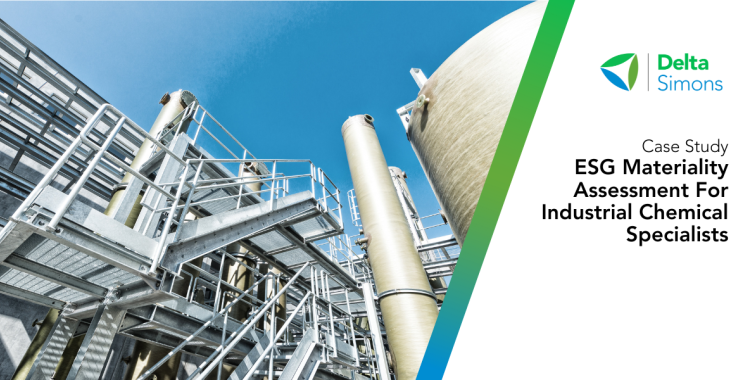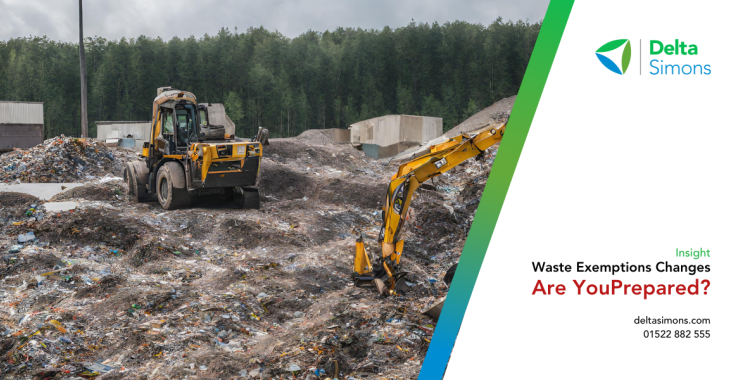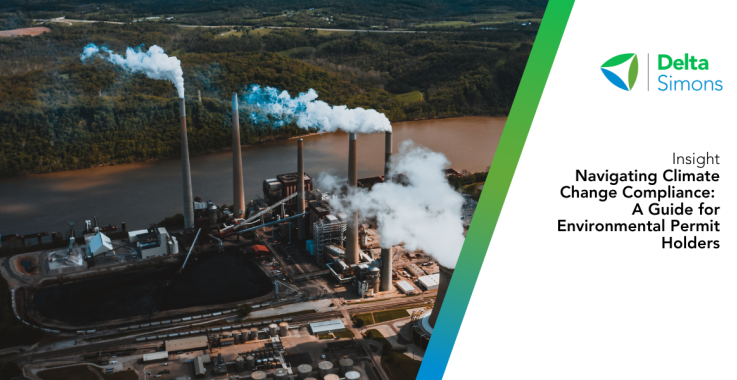Net Zero Carbon
Carbon Reduction Consultants
Net-Zero is an ambitious target for governments, companies and institutions to dramatically reduce mankind’s impact on the environment and to prevent the most damaging effects of climate change.
Net-Zero is an ambitious target for governments, companies and institutions to dramatically reduce mankind’s impact on the environment and to prevent the most damaging effects of climate change.
Significant cuts in emissions are needed over the next three decades (45% reduction by 2030 and 80% by 2050). These can be achieved by companies taking action, but also through wider societal changes such as grid decarbonisation, introduction of electric vehicles etc. Any residual hard-to-decarbonise emissions can be compensated by the use of certified carbon offset projects.
In May 2019, the United Kingdom government set a legally binding commitment to achieve ‘net-zero’ by 2050. Local authorities have announced climate emergencies. Investment firms are divesting from fossil fuels. Large Major global brands are setting their own carbon reduction targets to play their part in achieving a sustainable world and are setting carbon reduction targets for their supply chains. Companies. And it is becoming increasingly popular for local authorities to include science-based targets as a pre-requisite for public sector tenders and frameworks.
Services we offer
Carbon Footprinting
 Whether you are required to calculate your carbon for legal compliance; as a customer requirement or on a voluntary basis, Delta-Simons can support you.
Whether you are required to calculate your carbon for legal compliance; as a customer requirement or on a voluntary basis, Delta-Simons can support you.
Delta-Simons can assess the greenhouse gas (GHG) emissions associated with your organisation, product, event or supply chain. Assessments are aligned to international standards such as the GHG Protocol, PAS 2050 and ISO14067 – giving you the knowledge that your carbon footprint is both robust and comparable.
We support a diverse range of organisations form charities, SMEs up to large multi-national organisations measure their global emissions, incorporating local reporting requirements and methodologies into a single streamlined approach.
Our experienced sustainability consultants have delivered carbon footprint assessments in the finance, agricultural, manufacturing, technology, retail, fashion, construction, hospitality, residential care sectors.
Science Based Targets
Science-based targets are the international standard for setting carbon reduction targets. Targets are aligned to the Paris Agreement to limit global warming to well-below 2oC above pre-industrial levels and strive to limit warming to less than 1.5oC. These are the levels at which irreversible damage to the environment is predicted to happen.
The benefits of setting a Science-Based Target include: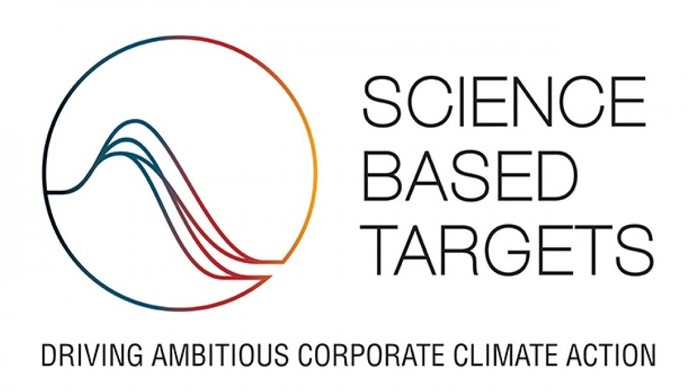
- Improve brand reputation by demonstrating commitment to the environment
- Enhance ESG performance on your organisation
- Reduce operating costs
- Increase business resilience in relation to increasing fuel costs and climate risks
- Win more work – it is now an expectation that suppliers to major organisations and local authorities have carbon reduction targets in place
Net Zero Roadmap
Once you have benchmarked your carbon emissions and set a carbon reduction target, the next step is to be develop a net-zero road map
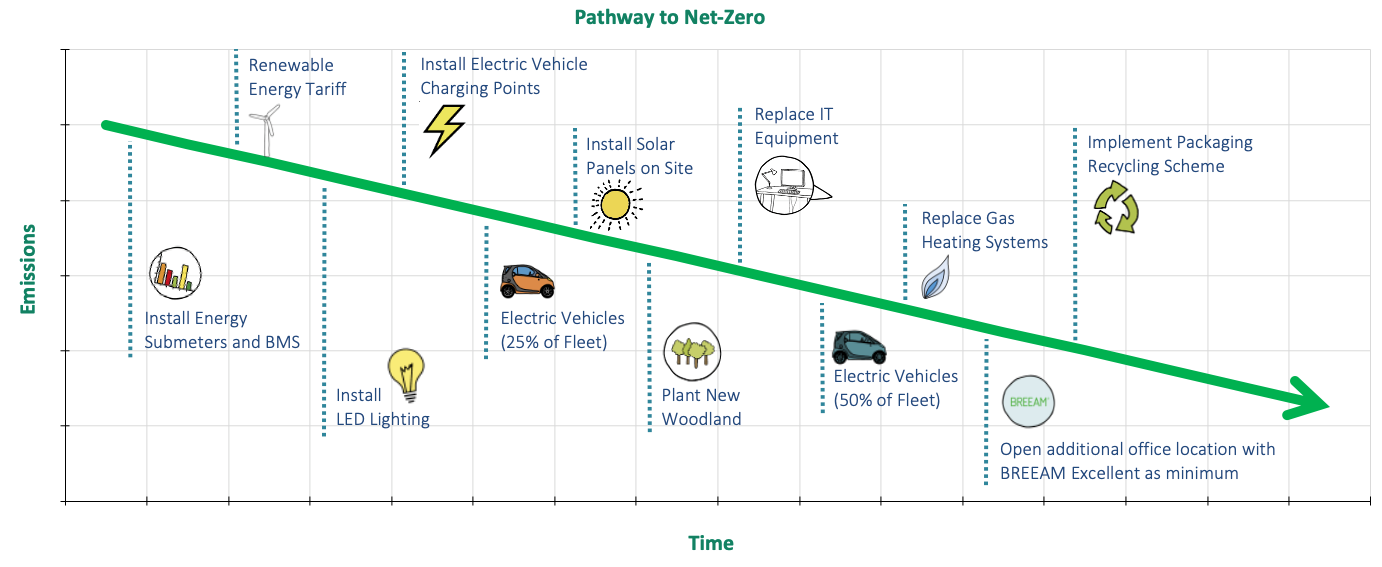
Delta-Simons can help support your organisation to develop a Net-Zero Action Plan to successfully achieve your Net-Zero ambitions. The objectives and goals in your Net-Zero Strategy are quantified and appropriate timescales identified. The process includes:
- Benchmark current performance
- Identify opportunities for reducing consumption, energy-efficiency, adopting renewable energy, transitioning to lower carbon fuels, electrification of vehicle fleet, responsible sourcing of materials, recycling and reuse.
- Conduct technical assessments – such as energy, transport and waste audits to highlight opportunities to reduce carbon emissions
- Review on a periodic basis to verify savings, ensure the pathways remain valid and achievable and adjust targets, where necessary.
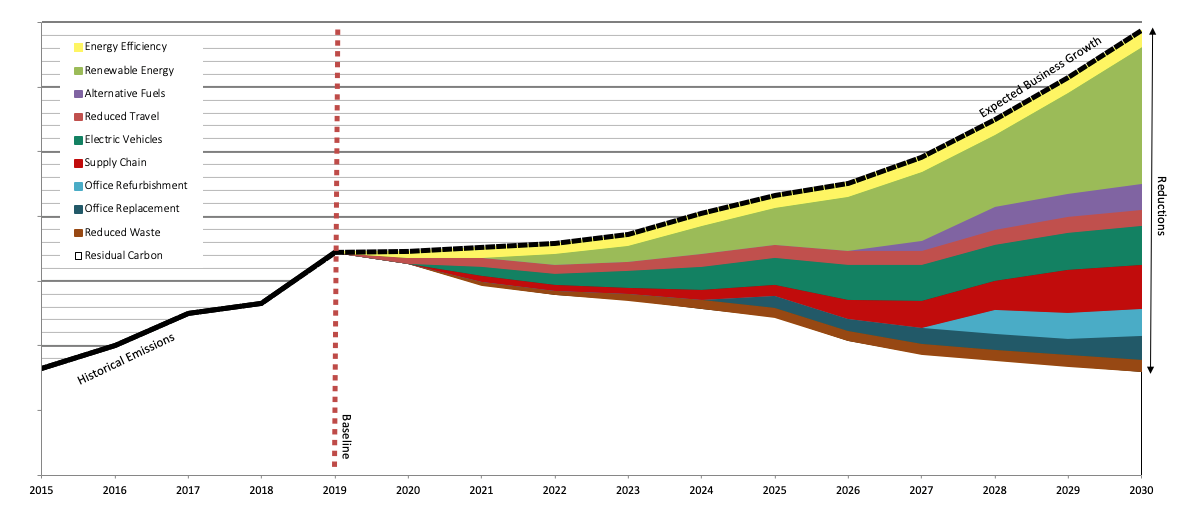
Net Zero Certification
Delta-Simons can certify your business, service, product or events as achieving Net-Zero Carbon.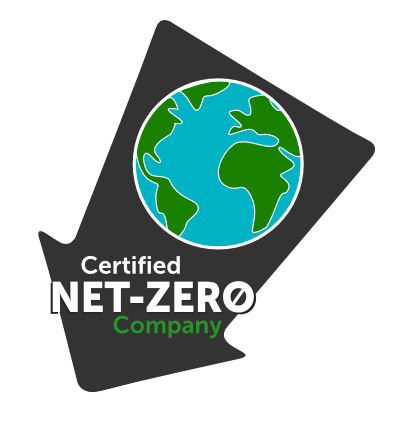
There are some areas of our society and economy which will remain reliant on fossil fuels for some time (aviation for example). As part of net-zero, it is possible for an organisation to purchase carbon offsets to compensate for these hard-to-decarbonise elements.
Carbon removal projects may include:
- Standard Solar Photovoltaic
- Wind Turbines
- Hydroelectric
- Cleaner Household Cooking Stoves
- Forest Conservation and Creation
Many carbon removal projects have additional social sustainability benefits which align with the UN Sustainable Development Goals (SDGs) such as preventing hunger or improving education.
Every business has different resources, budgets and influence. Therefore, the level at which carbon emissions become ‘hard-to-decarbonise’ will vary company to company. In general, it is considered better to offset than not. Not every business can budget to offset all of its carbon emissions immediately – but the earlier that carbon removal projects can be adopted as part of the strategy, the earlier positive impacts can be realised. As part of your Net-Zero action plan, we can support you to identify the optimum time to incorporate carbon removal projects.
Carbon neutrality is conducted in line with the PAS2060
Beyond Net-Zero Certification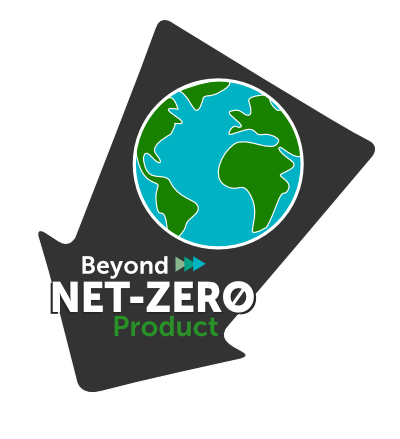
‘Beyond Net-Zero’ is the Delta-Simons seal of approval awarded to products, services, events, departments or whole organisations that:
- Measure their emissions
- Commit to make tangible reductions to their environmental impact
- Offset at least 150% of their emissions
To become certified as ‘Beyond Net-Zero’, you need to:
- Define – Establish the boundaries of what is to be assessed (product, service, event, vehicle fleet or entire company)
- Measure - We calculate the carbon emissions associated with your chosen subject in line with internationally recognised standards
- Offset – Remove 100% of the emissions via verified carbon offsets
- Plant – Remove at least an extra 50% of emissions through carbon offsets, ‘Woodland Carbon’ tree planting via the Woodland Trust, or other scheme;
- Commit - Identify actions to reduce carbon emissions in the future
- Communicate – We provide you with the ‘Beyond Net Zero’ logo and marketing content as a distinct and credible statement of your commitment to the environment.
Going ‘Beyond Net Zero’ shows your company’s commitment to not only neutralise the impact from some of your business activities, but to make a positive contribution to the environment.
Delta-Simons can support your organisation to source the right carbon offset schemes for you, taking into criteria such as budget, location, project governance, geopolitical instability, reputational risks etc.
Carbon Offsets
Not all carbon offsets are created equal. There are a range of different technologies, schemes and added social benefits, matching a wide range of budgets.
At Delta-Simons we can support you to find the right carbon offset project to match your business and its values. Our risk assessment process includes a review of:
- Certification - which standard is the project certified to (basic or enhanced criteria)?
- Project Vintage - how old is the project, was it developed under older standards with less stringent criteria?
- Longevity – how long is the project likely to continue
- Social Benefits - how tangible are they and are they measured and verified?
- Location Risk – is the project located in a country which has seen recent political unrest or is under scrutiny for human rights or environmental damage?
- Reputational Risk - has the project been associated with any negative press coverage?
- Investment – what percentage of the fee goes to the operator compared to brokers/others?
- Cost-effectiveness – project quality vs cost per tonne
- Eligibility for CORSIA – is the project likely to be eligible under the CORSIA regulations for aviation sector?



